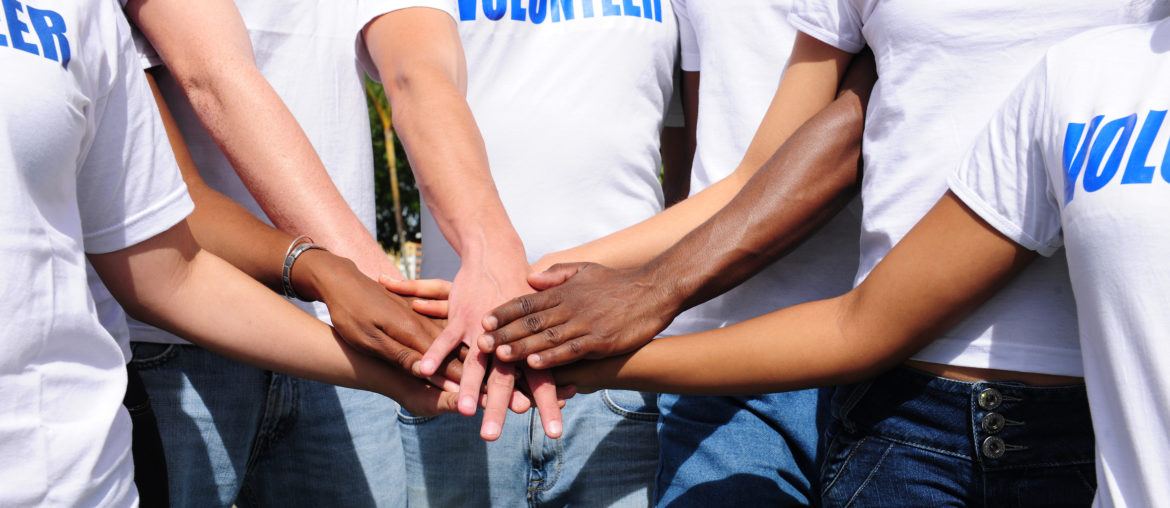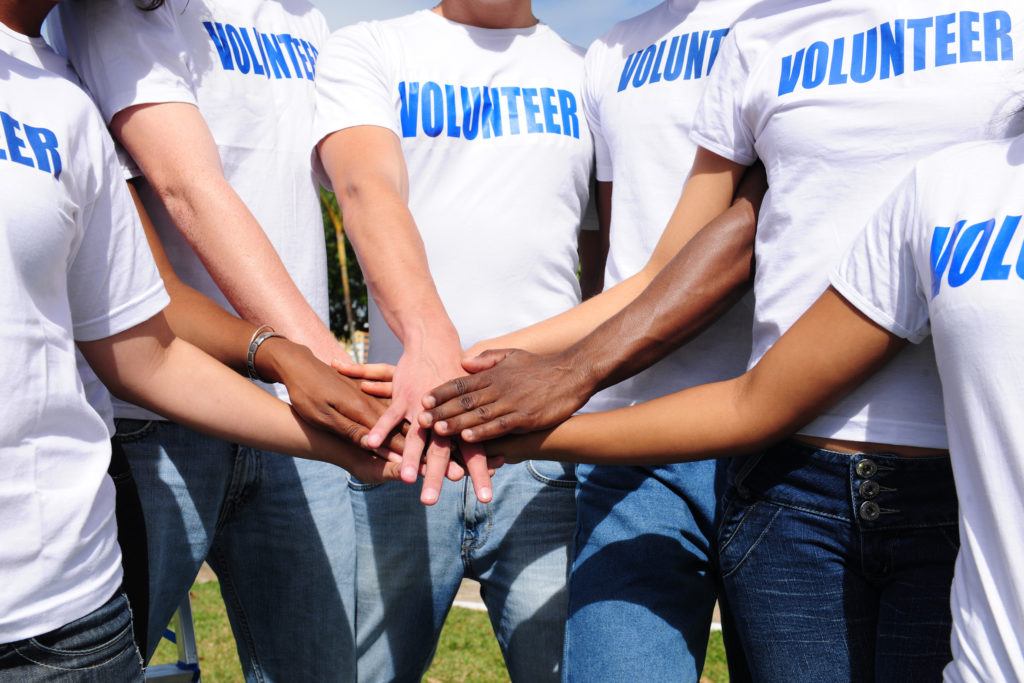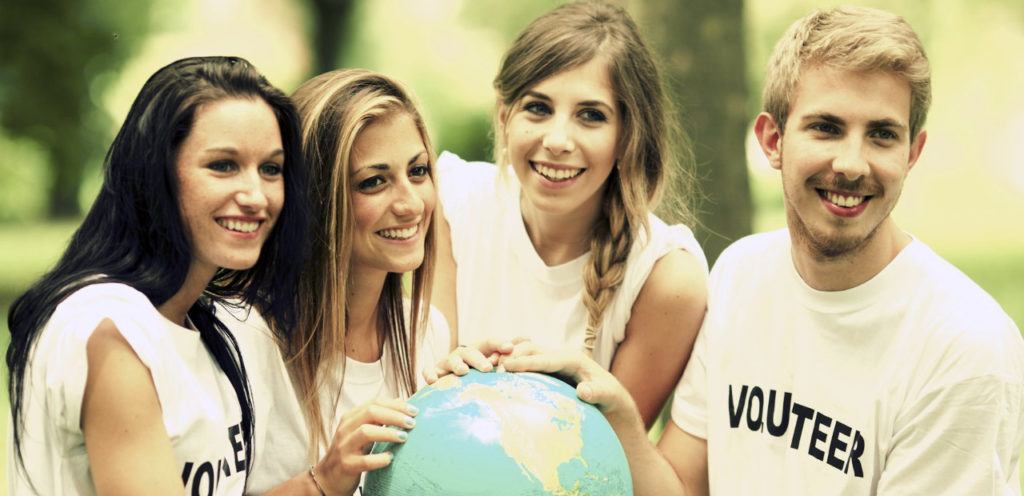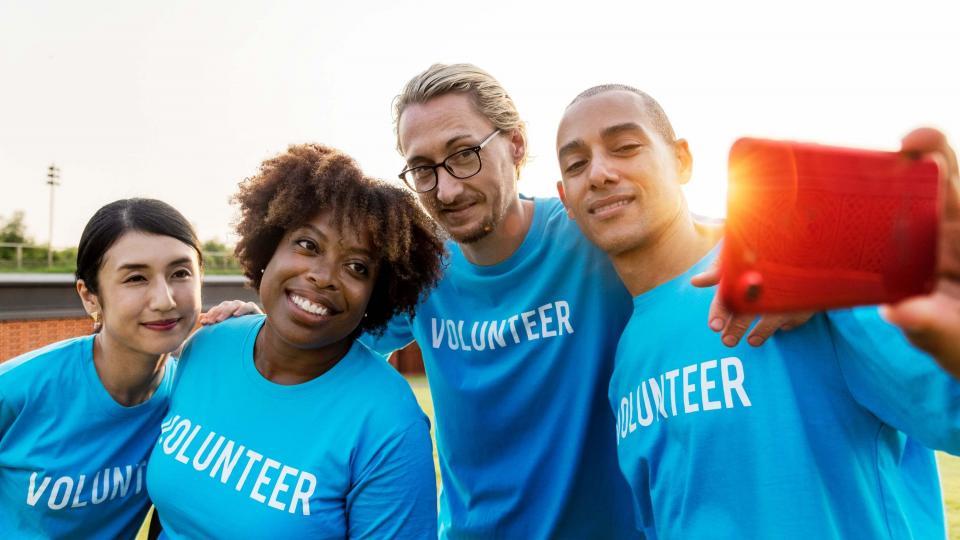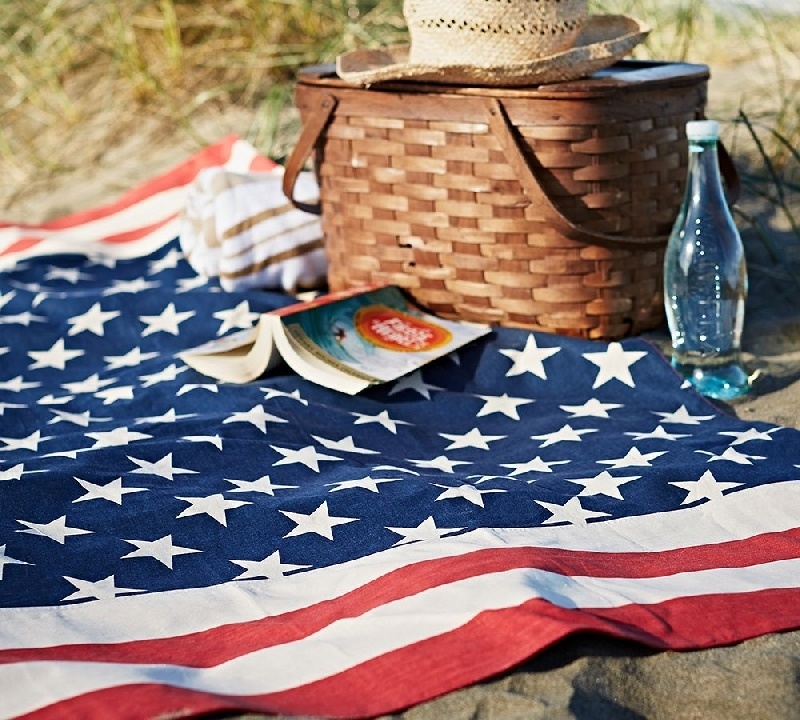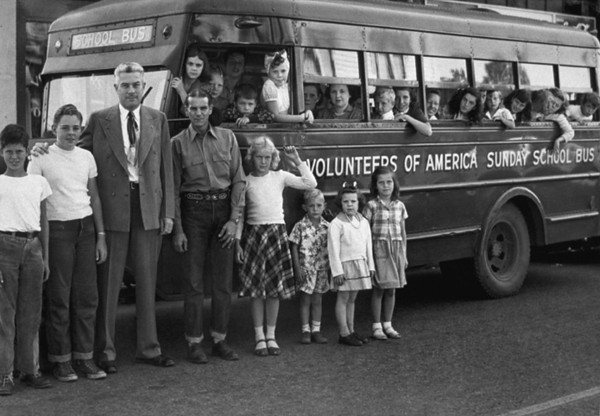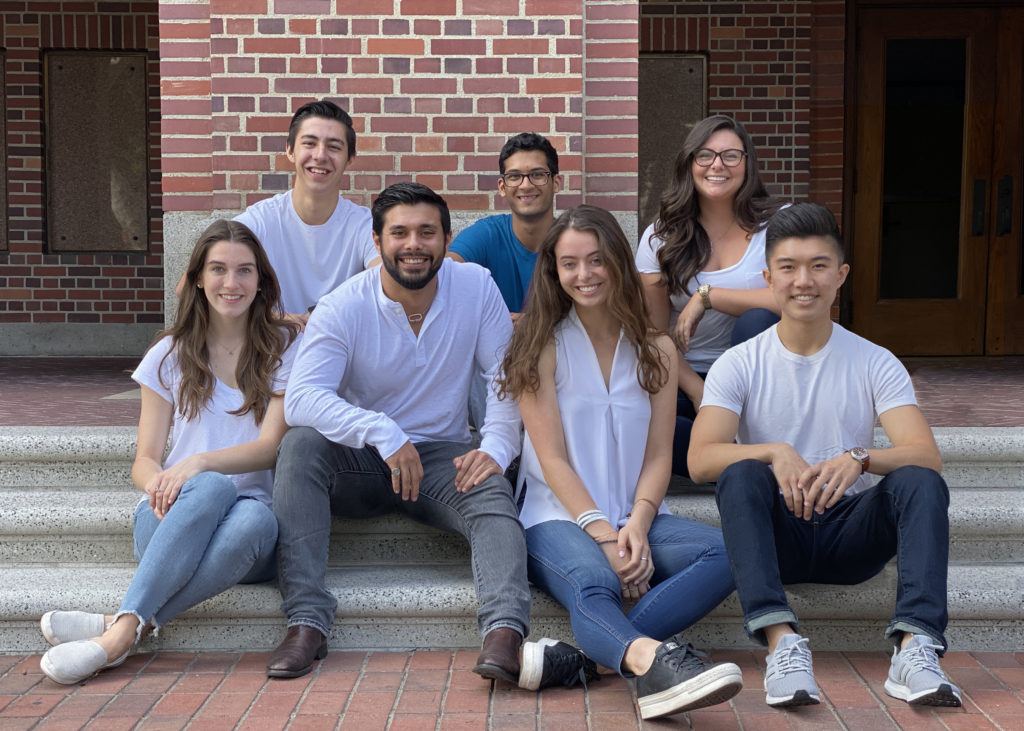
A few weeks ago I had lunch with Abby Mandell, the Executive Director of USC Marshall School’s Social Enterprise Lab. It is a remarkable undergraduate and graduate program that challenges today’s brightest students to come up with innovative solutions that solve some of humanity’s greatest challenges. Abby told me about some of the inspirational ideas her students have accomplished and one of them resulted in the creation of a nonprofit organization called Duet.
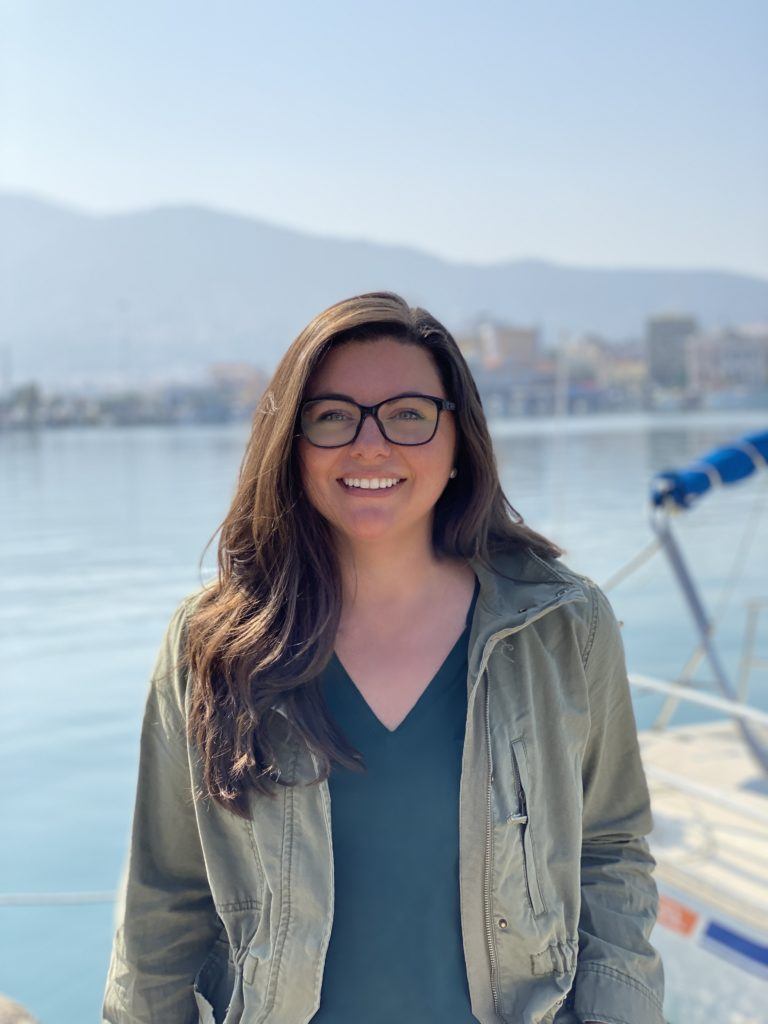
A team of six students in a USC Viterbi School of Engineering course took on an assignment of how to use human-centered design to create a system or a product around understanding the refugee crisis between Syria and Europe, with the goal to help alleviate at least one facet of the very complex issues facing refugees. Last week I connected with two of the team Co-Founder Michael Cesar and the head of Business Development, Stephanie Van Sickel to learn more about what these incredible students have achieved and where they are going with Duet.
Charity Matters: Tell us a little about what Duet does?
Michael Cesar: Through a class at USC, as a group of students we tried to create a new system of giving to tackles some of the older problems that have existed in philanthropy for awhile. We have created a new way of giving that is more transparent and more efficient. We did this to help Syrian refugees settling in Greece. We help rebuild their lives by giving them access to some of the key things that we all use every day such as basic necessities to things like a soccer ball that make you feel like yourself. We help them at the moment of resettlement to try to elevate them to a higher role of living.
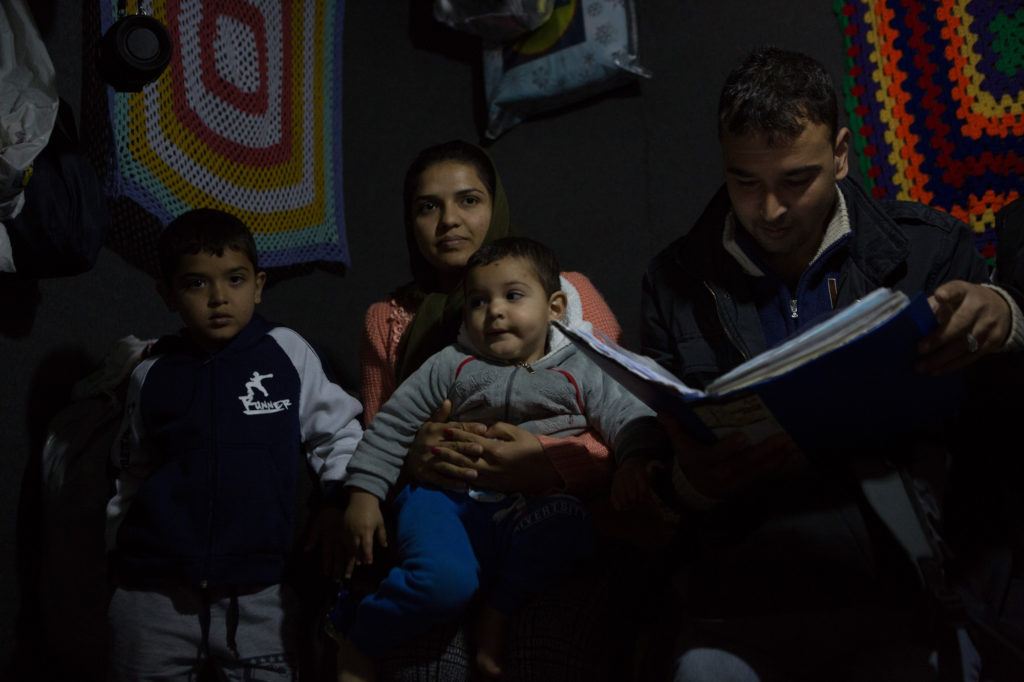
Stephanie Van Sickel: All these people want to help and there are all these great organizations that let people help. The old model is the money goes to the organization and then items that people need are being shipped overseas or people donate on items that they assume are needed.
We are shifting that model by putting the power in the hands of the recipient. We enable refugees to go to the local store and decide what they need. When a donor decides they want to buy someone in our system diapers for example. The recipient goes to their local store and uses their duet credit to “purchase” the diaper size their child needs and as a result, they help the local economy and store owner’s business. There are two impacts here, it is not just for the refugees it is for the local community and economy.
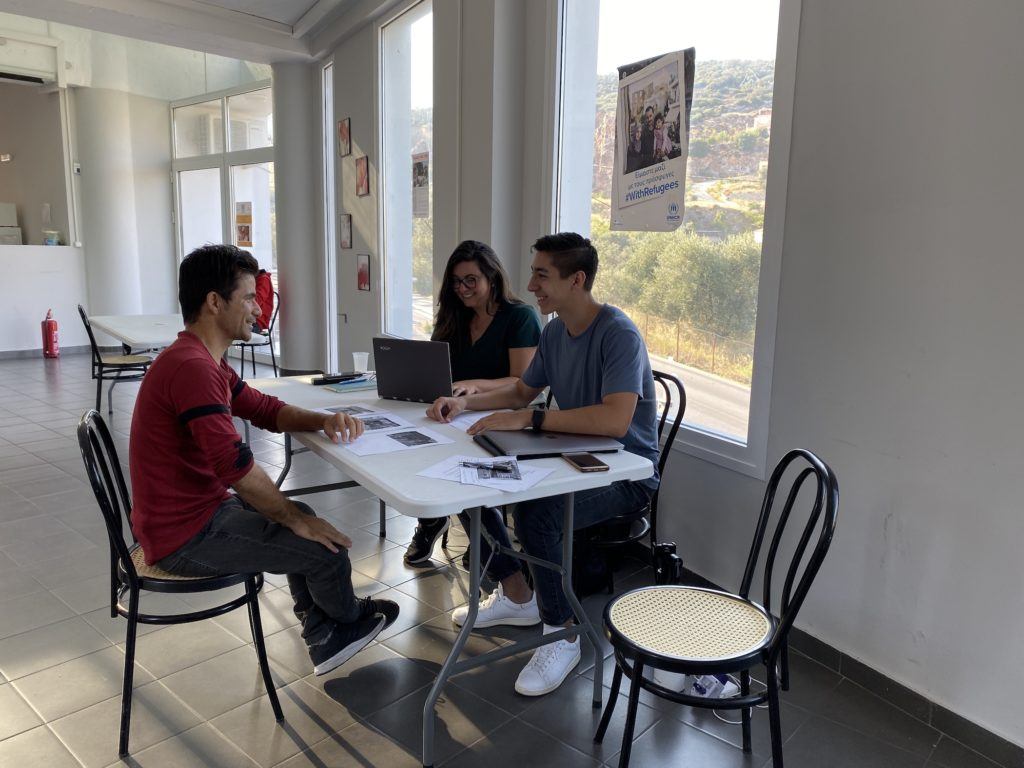
Charity Matters: Tell us a little about how this class at USC works?
Stephanie Van Sickel: The class is about human-centered design and innovation in engineering for global grant challenges. It is an interdisciplinary course so graduate and undergraduate students and for a full year you are broken up into teams to find solutions to improve the lives of refugees. The class is partnered with the refugee camps and those situated outside the camps in Leptos, Greece.
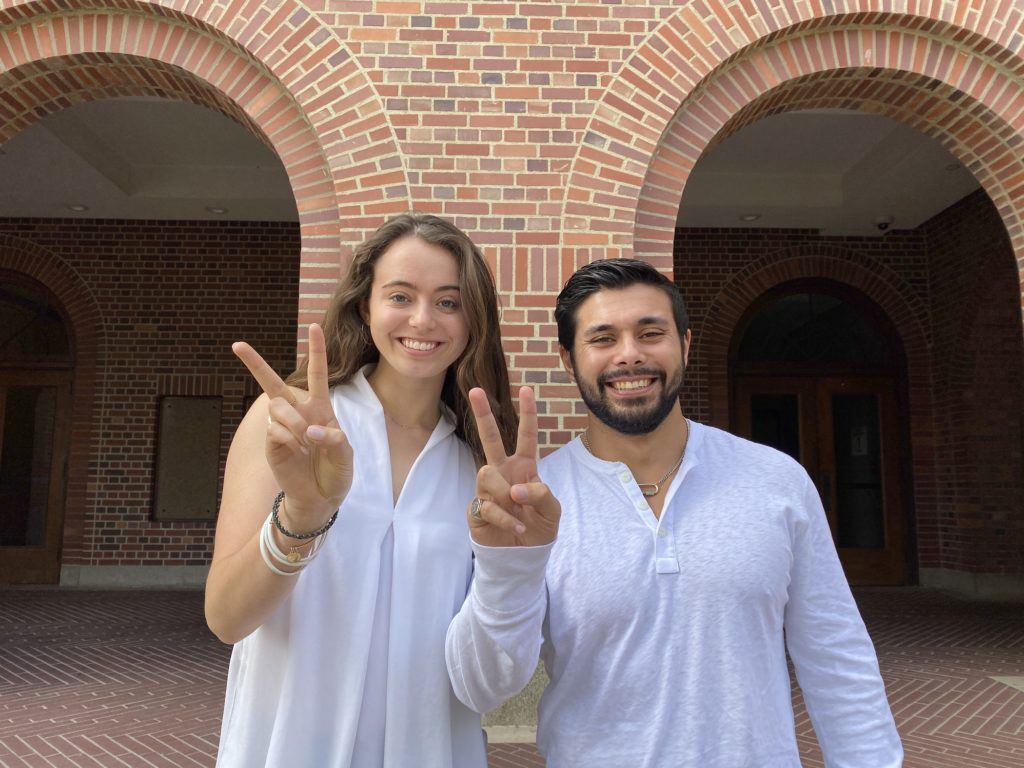
Charity Matters: When you started this class did you think you were going to start a nonprofit?
Michael Cesar: No, initially but very quickly yes. We started believing quite early on that this was a real possibility. When I initially signed up for the class I thought I was going to probably drop it within the first few weeks.
Stephanie Van Sickel: I think we fell in love with the problem, not necessarily the solution. Then when you realize that you have the possibility to actually make a difference, you have to keep going forward.
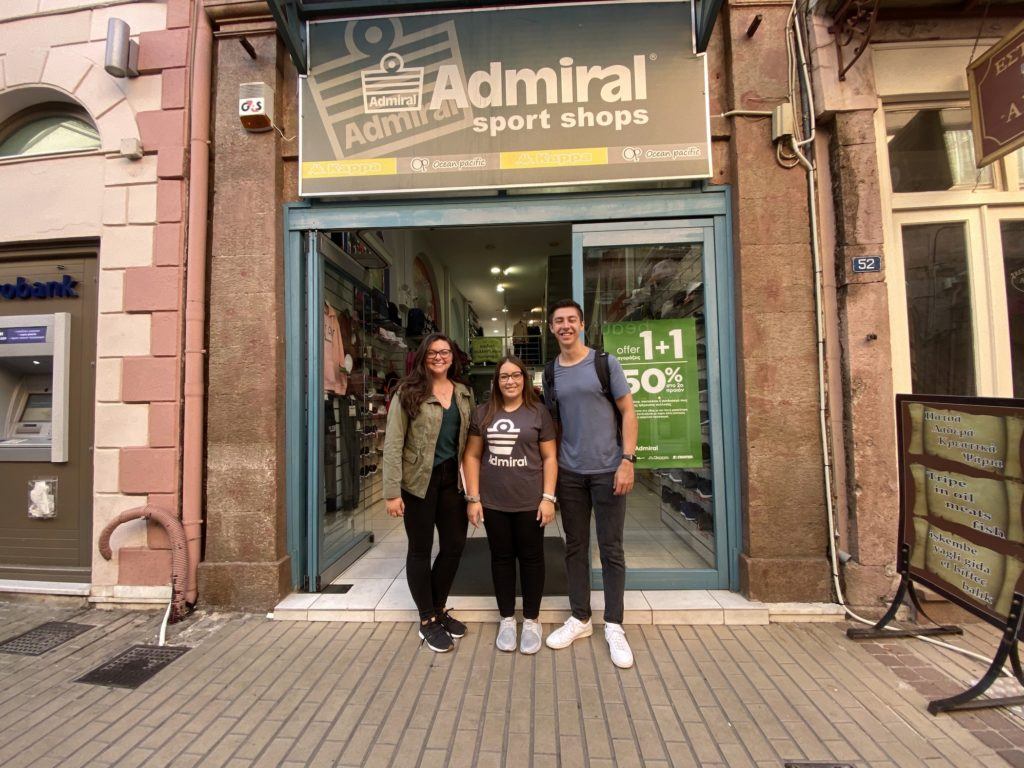
Charity Matters: What was the moment you knew you needed to act and start Duet?
Michael Cesar: The first realization was when we visited the camps for the first time and quickly realized the inefficiency of current aid. We saw so much waste, we saw donations that came that didn’t fit or coats coming in the summer, we saw tons of toys donated but no one had underwear or children’s books in the wrong language. We were so frustrated because the outpouring of love was real and yet it wasn’t being funneled the correct way.
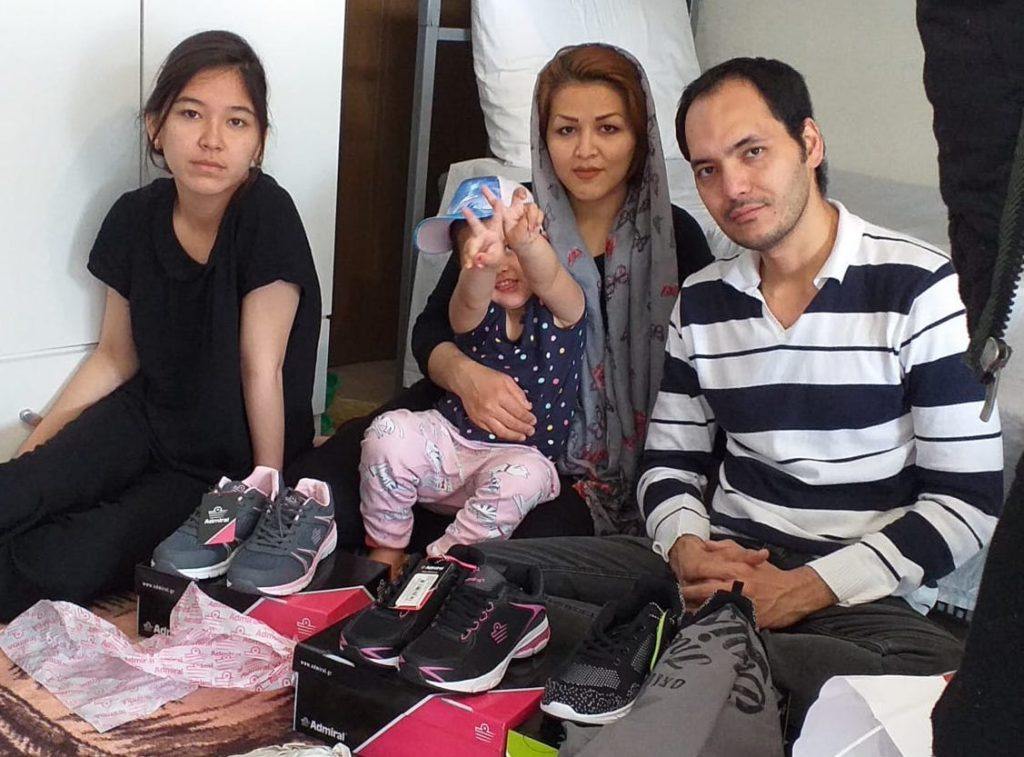
We saw the pain of the people being handed things. These refugees have been stripped of the choices they make from the clothes they are wearing, which were not their own and the lack of autonomy over their lives. We walked into a few local stores and asked if they would be interested in a system where refugees could shop and be a part of a new system of support for the refugees and the store owners were excited to be able to help and be a part of a solution.
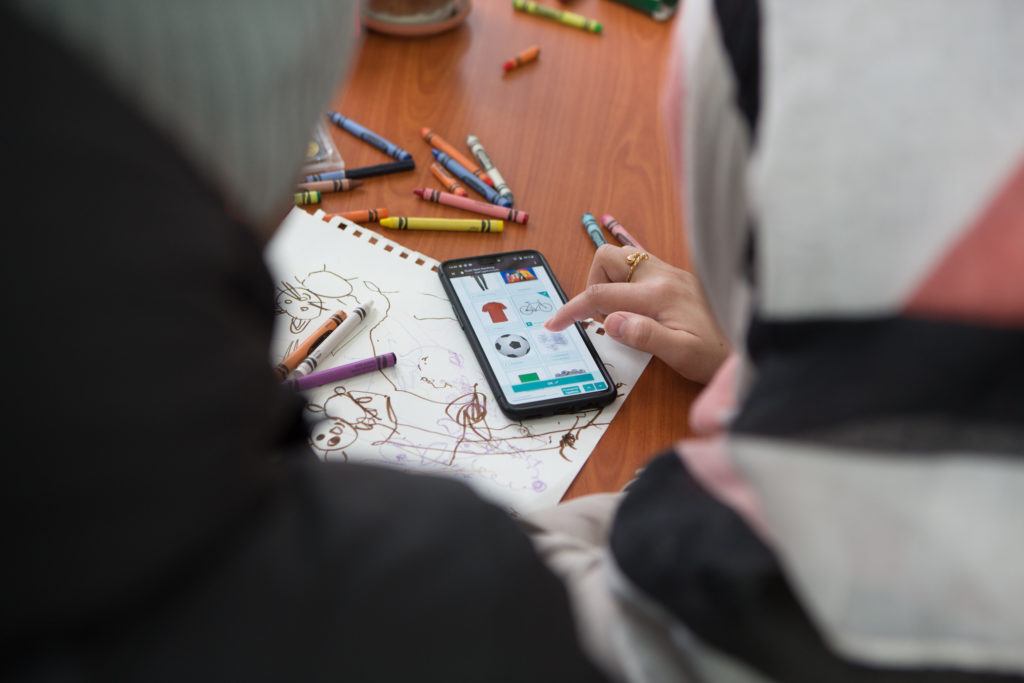
Stephanie Van Sickel: We realized pretty quickly that locals were wary of nonprofits because since the refugee crisis began in 2015 so many organizations came and left. The store owners were trying to sell a good and then a nonprofit would come in with a million pieces of that item for refugees and the store owner couldn’t survive. So these store owners were cautious initially in trusting us but when we said that we wanted to work with them and the stores are a critical piece of the solution they were excited to partner with us.
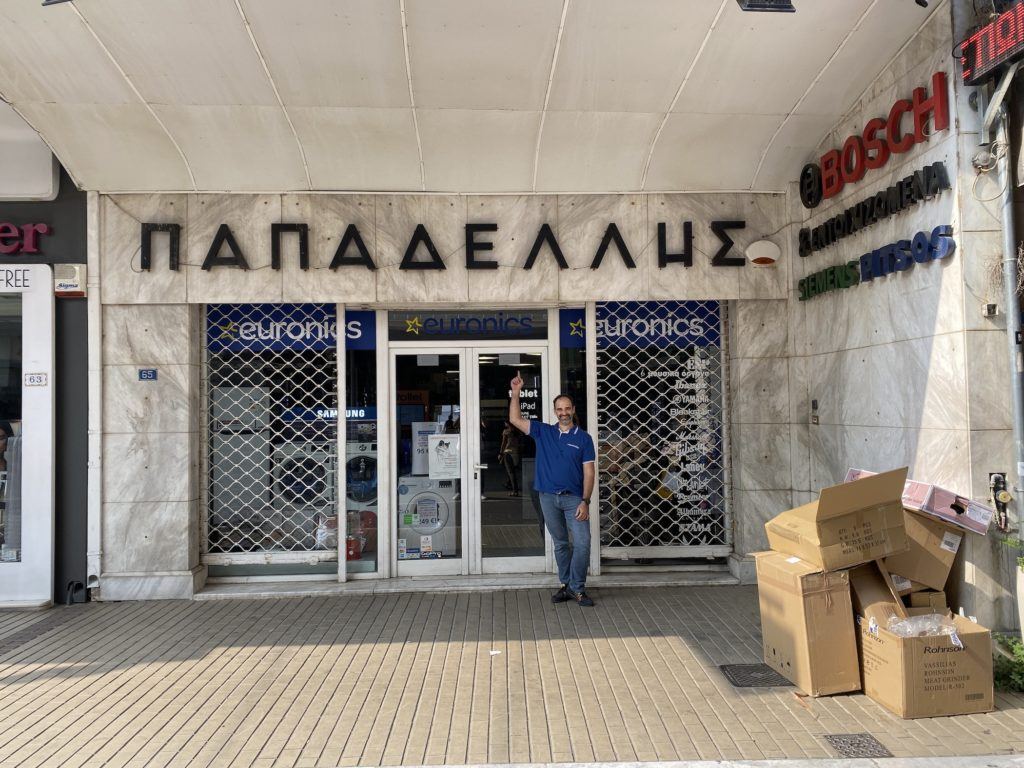
Charity Matters: What are your biggest challenges?
Stephanie Van Sickel: We are asking people to look at philanthropy differently as opposed to an organization that tells you what you need. In this case, the refugees know best what they need and it is a shift as to how people look at giving and philanthropy. The refugee crisis is a big complicated issue so getting people to the starting line to understand what we do and why we do it and then going from there. We may feel small but we think big at Duet. Duet can really help people who are being rehoused or rehomed in many different opportunities whether it is because of a fire or coming out of homelessness, there are a lot of different opportunities to use the model we have built.
Michael Cesar: We are trying to focus on the way people think about giving. The challenge comes in shifting the power dynamic from the old model where the donor is the hero. To the new model where the donor is the supporter. It is a shift in belief systems.
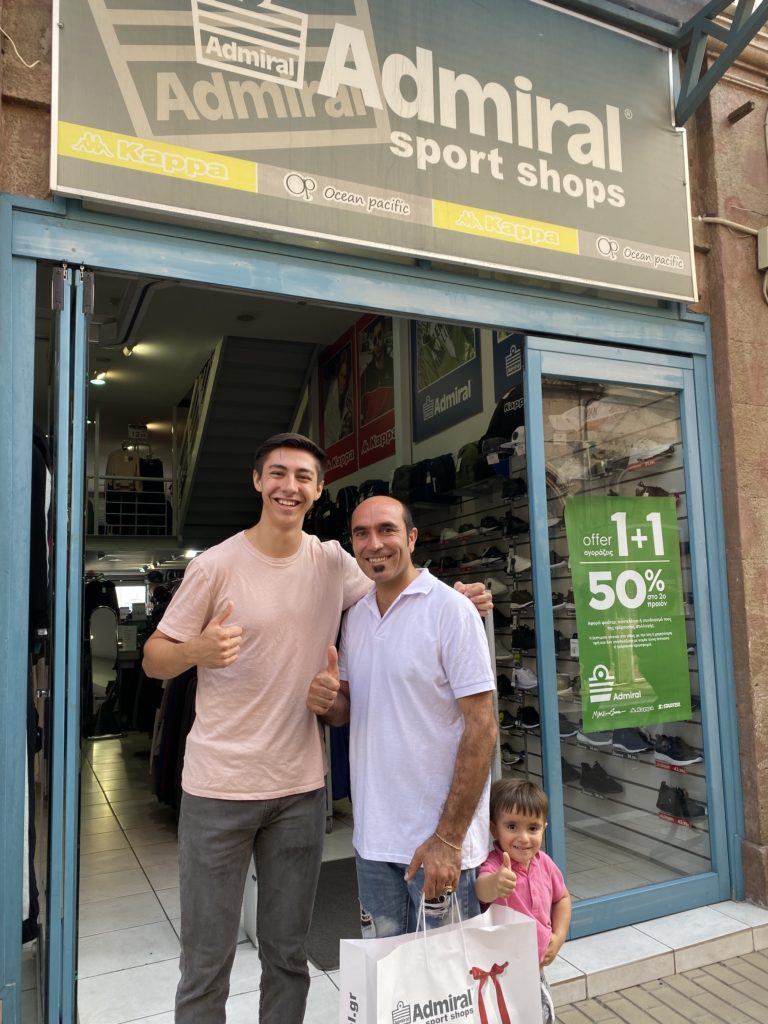
Charity Matters: What fuels you to keep doing this work?
Stephanie Van Sickel: For me, this is what I have decided to dedicate my life too. It’s why I came to get my MBA. This has been the work I have wanted to be in my entire life. Now knowing the faces on the other side and seeing the true impact of what we are doing. So now when its 1 am and I have one more thing to do, you just push through. This is bigger than you and that’s what helps to drive you.
Michael Cesar: For me, I really, really want to fix the problem. I’m quite stubborn as a person. The idea that there is a problem that we have all seen that exists, that it could be fixed and that could radically change the way that love, generosity, and kindness is shared around the world, is sort of infuriating to me. The idea of chipping away at the roadblock is what I have become obsessed with. To let the kindness and humanity come out and to let people engage and remove the roadblock has been such a wonderful problem to try and fix.
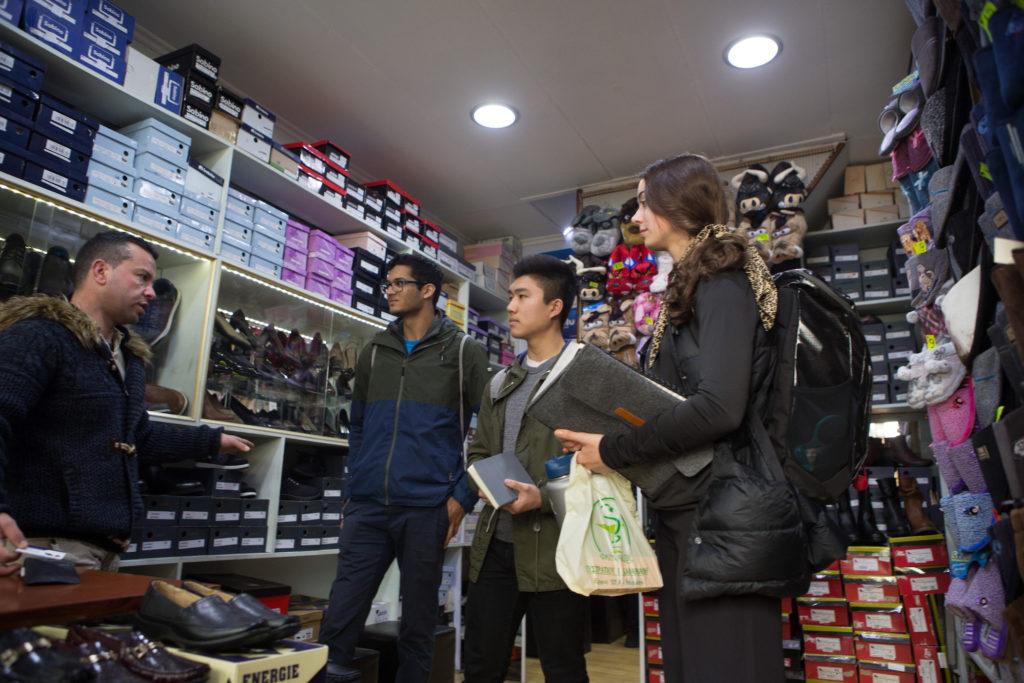
Charity Matters: When do you know you have made a difference?
Stephanie Van Sickel: I went back to Greece this past fall to meet with everyone and see how things were going, especially with our store partners. The stores said that the families thank us so much even though we are only part of this, someone else donated the diapers that they got to pick up from our store but we get thanked. The stores asked if we could have the duet families’ names and we asked why. They said that these Duet families who come in to get their things become friends and we would love to be able to make them feel more welcome when we see them by knowing their names. We didn’t set out to integrate the community but to see the shift in the way these two groups are referring to each other as neighbors and friends was so inspiring.
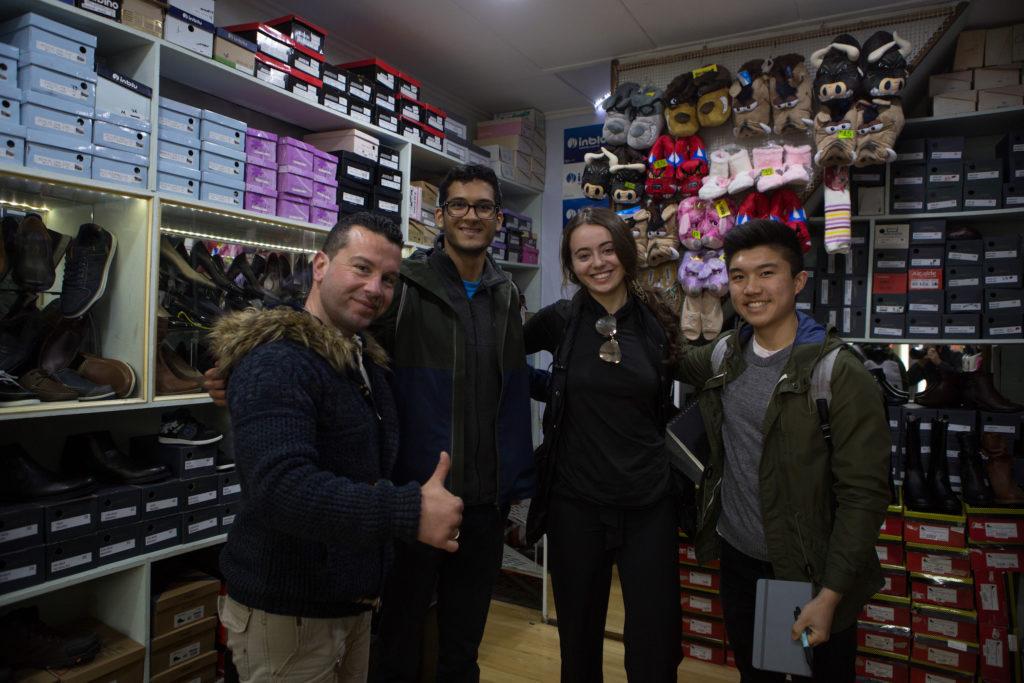
Michael Cesar: When a refugee picks up an item that has been donated at their local store we ask for a photo confirmation to make sure that our donors know that the item they paid for was received by the person they intended it for. What has been unexpected is that when the refugee is taking their picture to confirm they received the item, they ask that we send along with their photo with a thank you message to the donor who bought this item for them. It has been so touching and unexpected.
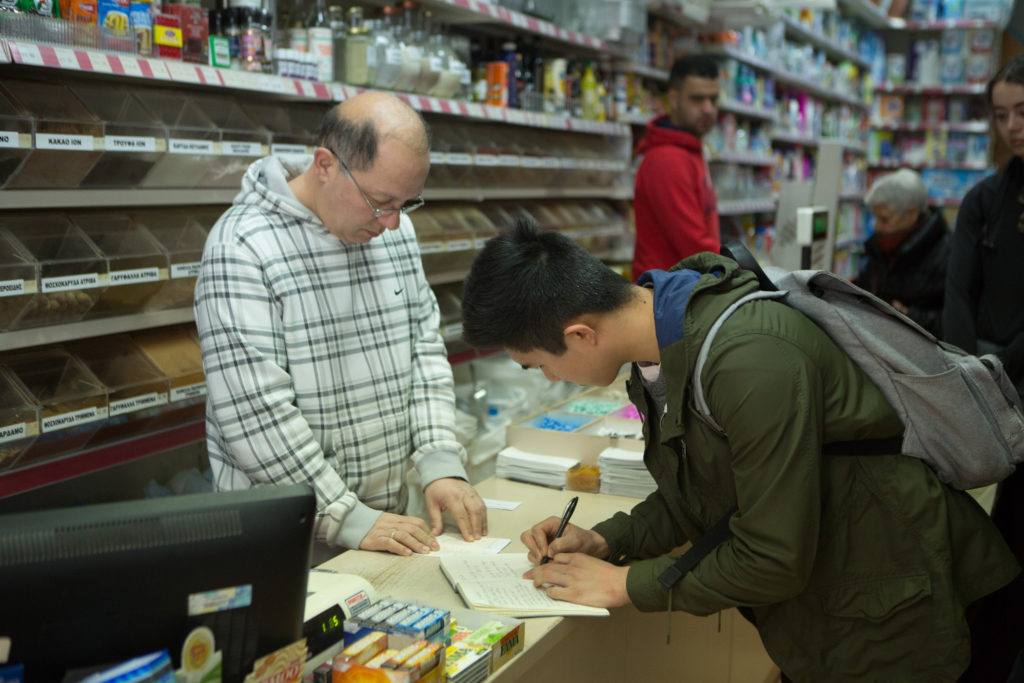
Charity Matters: Tell us what success you have had? What has your impact been?
Stephanie Van Sickel: We like breaking our impact up into different buckets. We say that we have had 320 items put into the lives of refugees to rebuild their lives. Beyond that, we have moved $10,000 of direct profit into small family-owned businesses in towns impacted by the refugee crisis. We have almost 150 unique donors from all over the world.
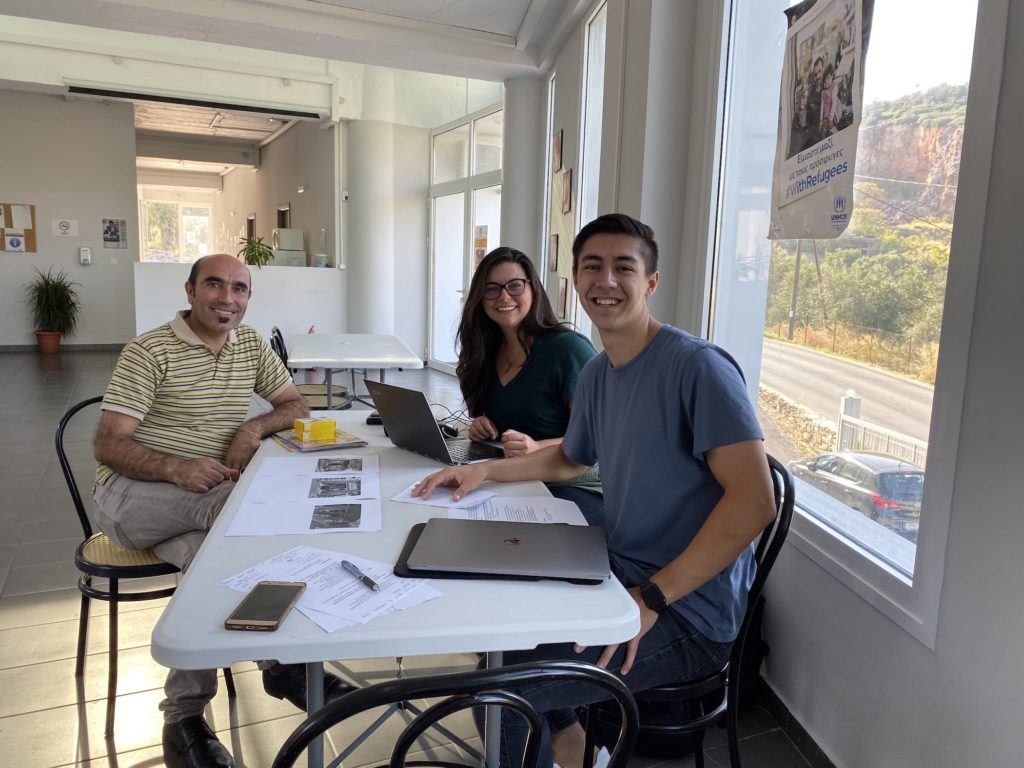
Michael Cesar: I think we have one story that best explains what happens when you let people maximize what they receive by letting them choose you can change their lives. We had one guy who was a single father and he only requested diapers for a very long time. We told him he could ask for other items and finally, months later he requested a $400 laptop, which was the highest request we had ever received. We asked why and he explained that he had 200,000 youtube followers in his homeland who watched his phone repair videos and if he could get a laptop he would be able to be paid again by youtube and could support his family. One of our donors bought him his laptop and he is now becoming self-sufficient caring for his child.
This is a group of talented resourceful hard working people and if you give them the basic tools they will succeed beyond your expectations.
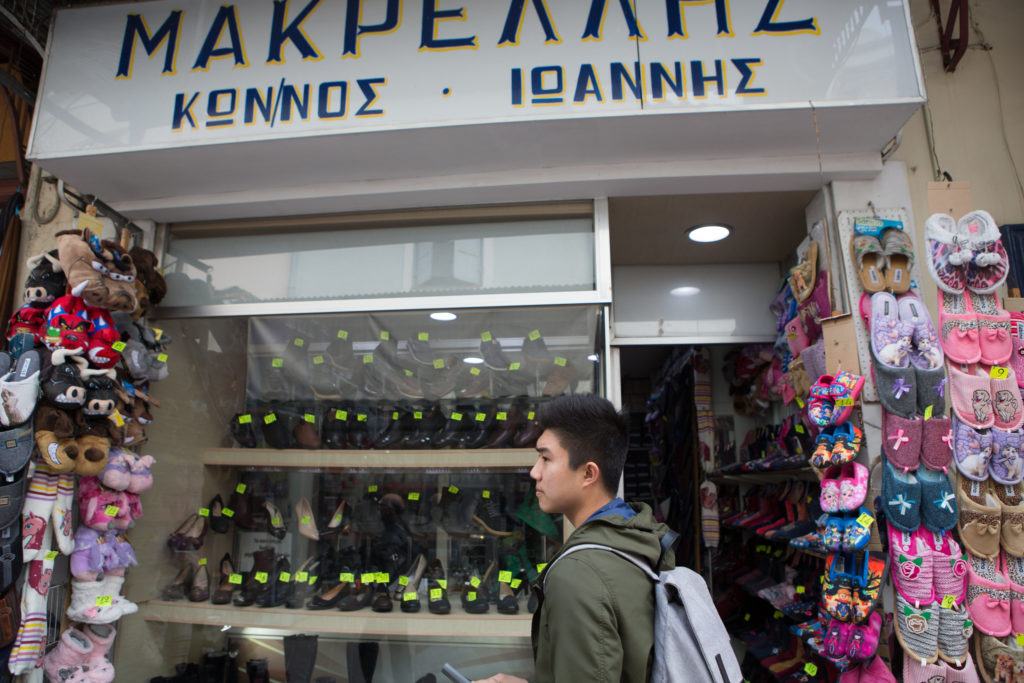
Charity Matters: If you could dream any dream for Duet what would that be?
Michael Cesar: I would love the moment where thirty other organizations have adopted our model and the world has moved to this new way of giving. We don’t decide what people need and the receiver does. I would love if this went into other organizations, new nonprofits, even the United Nations could adopt this new mentality. I would love for this app to be something that makes us think about how we are treating those who we are trying to help.
Stephanie Van Sickel: I would like to see Duet grow and become a new philanthropic model being used all over the world and shifting the way people look at philanthropy.
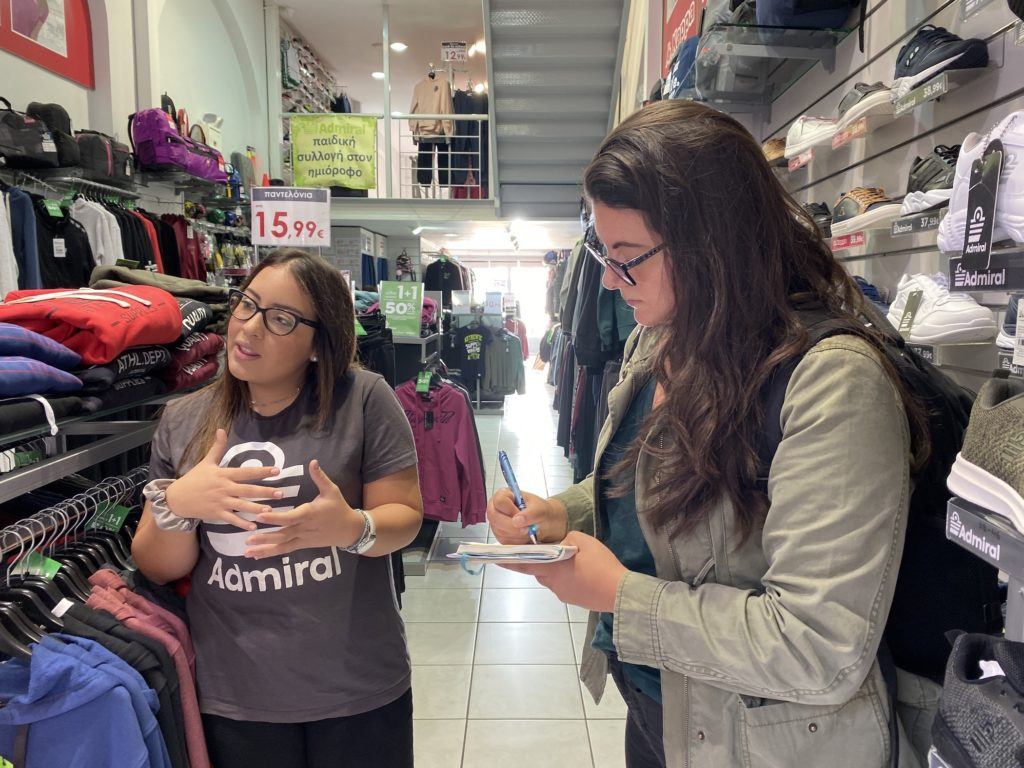
Charity Matters: How has this journey changed you?
Michael Cesar: My emotions are much closer to the surface now.
Stephanie Van Sickel: Growing up I thought I wanted to be close to these issues. I got into development because I wanted to make an impact larger than myself. If I couldn’t give a million dollars at least I could raise it to make the impact and move the needle. Duet has opened up my eyes that I want to be closer to the problem and more boots on the ground to continue to make more of a human impact.
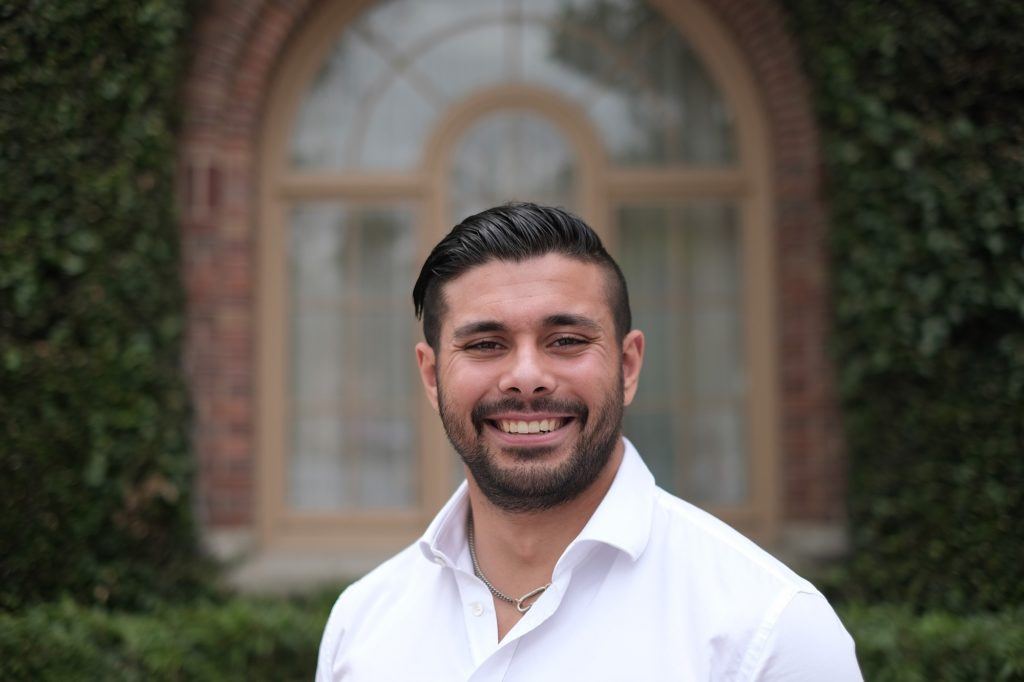
Charity Matters: What life lessons have you learned from this experience?
Stephanie Van Sickel: Being such a small team we realize that if we are not asking on social media the giving comes to a complete stop. If you don’t ask you don’t receive.
Michael Cesar: Dignity isn’t something you can never take away from someone. Everybody has it and it is far more important than I previously thought. You treat people with dignity and you respect the dignity that other people have. I have also learned the difference I can make in other people’s lives.
CHARITY MATTERS.
YOUR REFERRAL IS THE GREATEST COMPLIMENT, IF YOU ARE SO MOVED OR INSPIRED, WE WOULD LOVE YOU TO SHARE AND INSPIRE ANOTHER.
Copyright © 2020 Charity Matters. This article may not be reproduced without explicit written permission; if you are not reading this in your newsreader, the site you are viewing is illegally infringing our copyright. We would be grateful if you contact us.

